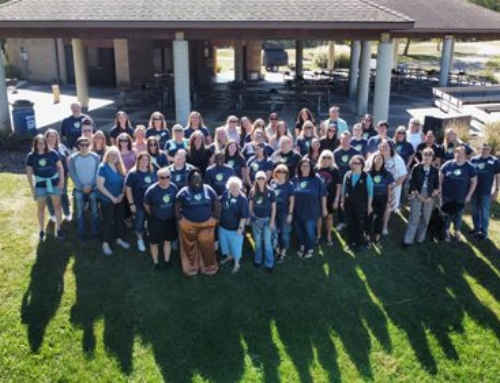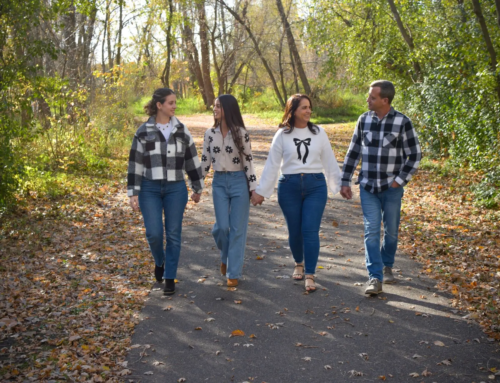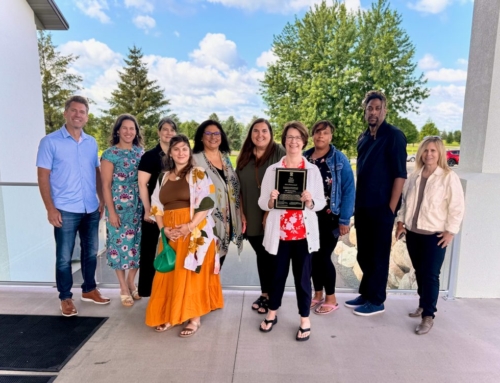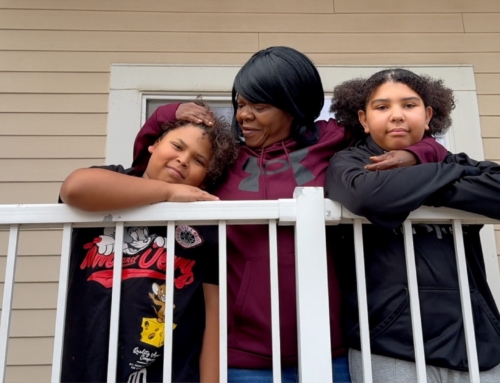By Jeff Mortensen
President & CEO

Brittany arrived at her new high school as a transfer student with no connections and a history of challenges. She had been enrolled in four different schools within the last three years. Brittany was all too familiar with judgment, as her records of poor attendance and numerous suspensions always seemed to precede her.
School staff referred Brittany to Paula, a school-based family support worker with 360 Communities’ Partners For Success program. As an incoming junior navigating one more unfamiliar school, Brittany had learned to remain defensive and offer little information. She met with Paula a week before school was to begin.
Brittany shared her desire to come to a smaller school, but she had given up hope that things would be different when it came to this staff and school community. She felt she simply did not fit in anywhere. Brittany had been living with her mother, but her mom did not attend this meeting.
As a family support worker, Paula knew that establishing a relationship based on care and trust would be critical to any long-term success. Prior to their initial meeting, Paula had done her homework. Brittany was exceptionally bright, but did not complete much work and her grades consequently suffered. She had a history of theft and was suspended recently for stealing an item from another student. Brittany had an upcoming court date for her latest offense and was facing consequences. During their initial meeting, Paula focused on the relationship and listened without judgment.
Paula and school staff were not able to establish contact with Brittany’s mother before the start of the school year, and when school started, Brittany did not show. When she came to school two weeks later, Paula re-engaged with her to establish a trusting relationship.
Initially, Paula offered her small things for support – a piece of candy, a granola bar, or school supplies. Brittany declined to take anything, but those interactions mattered. It was important that Paula meet Brittany wherever she was at that moment and work to constructively understand the unique challenges that she faced. Paula knew that in order to build trust, she needed to take her time and demonstrate that she was a consistent, caring adult in Brittany’s life. After a few meetings, Paula was able to partner with Brittany to set goals around attendance and homework completion.
360 Communities has a history of proven success with intentional engagement and partnership. Over the past three years, 86 percent of students in the Partners For Success program improved or maintained their attendance, and 89 percent of students in the program improved or maintained their academic performance.
With the many challenges that a student might be facing outside of school, stabilizing attendance and grades can be a herculean effort that involves multiple partners. 360 Communities staff, school staff, parents, counselors and more play critical roles in ensuring students remain engaged and do not drop out of school.
Research has shown that investment in this work pays dividends for society as a whole. According to a 2015 study by the University of Minnesota’s Center for Applied Research and Educational Improvement, for every dollar invested in Partners For Success, a conservative estimate of $5 is returned in social benefits, which includes personal earnings gains, higher tax revenues, public health savings, and crime reduction. In addition, the study says that preventing even four students from dropping out of high school per year, generates social benefits that far exceed the cost of the program.
About three weeks after her enrollment, Paula noticed Brittany was sitting in the hallway looking downtrodden. She invited her to come hang out in her office. Once there, Brittany cried and confided that in two days she had to go to court for the recent theft. She didn’t feel like anyone believed her story because she had a history of stealing and other offenses. They talked about the possible consequences and how she was doing in school. Brittany liked the school and finally felt like she was settling in, but now worried she would not be able to return.
Paula was determined to support Brittany. She arranged to meet Brittany the morning before and the day after her court date. Meanwhile, Paula met with the principal and the school psychologist and asked if it was possible for the school to write a simple letter for Brittany. She wanted it to demonstrate the difference being made, that Brittany had settled in well and was making friends, her attendance was much better, and she was respectful to staff and students. The principal agreed and sent the letter to court.
Brittany’s court date came and the judge sentenced her to community service. She was relieved and felt that she had a fresh start. She couldn’t believe that the school had written a letter on her behalf and was touched that she had the school in her corner.
By the end of the school year, Brittany had almost perfect attendance and had received high school’s perfect attendance award on several occasions. Up until the end of school, she met most days with Paula or other school support staff to check in, or sometimes simply to have a quiet place to work.
Today, Brittany smiles more frequently. She allows Paula to help her with small things like snacks, personal care items, and even a mattress. Her last report card showed all A’s and B’s and there has not been a single report of theft in the school.
The positive outcomes of the Partners For Success program stem from family support workers’ ability to build trust and offer flexible solutions. When Brittany arrived at school last fall, her challenges were unique. Paula was able to assess her needs, craft a plan that fit her circumstances, and partner with school staff to help her navigate the barriers ahead of her.
Most importantly, Brittany is ready to return to the school in the fall, a place where she feels she is trusted and she belongs.





